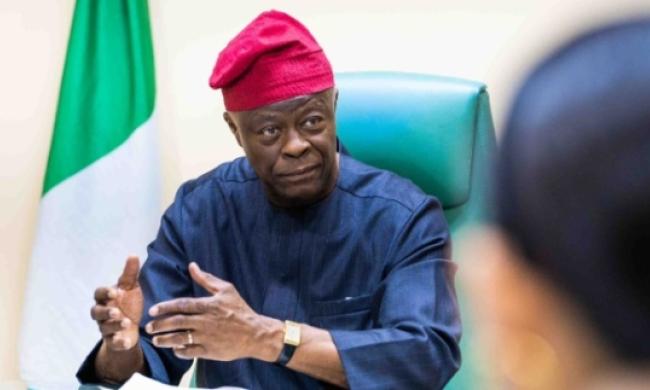
Wale Edun, Nigeria’s Minister of Finance and Coordinating Minister of the Economy, has stated that the government still requires additional borrowing to meet its budgetary needs, despite the country’s current debt burden of over N134 trillion. His comments came during an interactive session with the Senate Joint Committees on Finance, National Planning, and Economic Affairs, where discussions focused on the 2025-2027 Medium-Term Expenditure Framework and Fiscal Strategy Paper.
Edun acknowledged that certain Ministries, Departments, and Agencies (MDAs) had exceeded their revenue targets but emphasized that borrowing remains necessary to ensure continued government operations. He argued that any additional borrowing should be done productively and efficiently to properly fund the budget, especially with the Senate’s approval.
“The revenue effort has been positive, but we need to improve further,” Edun said. “In the meantime, we still need to borrow productively, effectively, and sustainably to invest in Nigeria’s economy—focusing not only on infrastructure but also on social services like health, education, and safety nets for the poorest and most vulnerable.”
Senator Atiku Bagudu, Minister of Budget and Economic Planning, also addressed the issue, noting that the N35.5 trillion 2024 budget includes plans for borrowing, primarily aimed at covering the N9.7 trillion deficit. He highlighted that despite some revenue-generating agencies surpassing their targets, borrowing is still necessary to adequately fund the budget and support long-term development plans, including the ambitious Agenda 2050, which aims for a GDP per capita of $33,000.
However, the Economic and Financial Crimes Commission (EFCC) and the Revenue Mobilisation and Fiscal Commission had previously projected that Nigeria could fund its budget without the need for loans. EFCC Chairman Ola Olukoyede informed the committee that the agency had recovered over N197 billion since January 2024. He suggested that if the government focused on collecting revenues from International Oil Companies (IOCs), Nigeria could generate sufficient funds to meet its budgetary requirements.
Additionally, Bashir Adeniyi, the Comptroller General of Nigeria Customs Service, revealed that the Customs Service had collected N5.352 trillion in revenue, exceeding its N5.09 trillion target for the 2024 fiscal year. He also outlined a revenue target of N6.3 trillion for 2025, with projections for a 10% increase in each of the following years, 2026 and 2027.
For more updates, join our WhatsApp channel here: https://whatsapp.com/channel/0029VabITrvEAKW7DSkTfP0J.